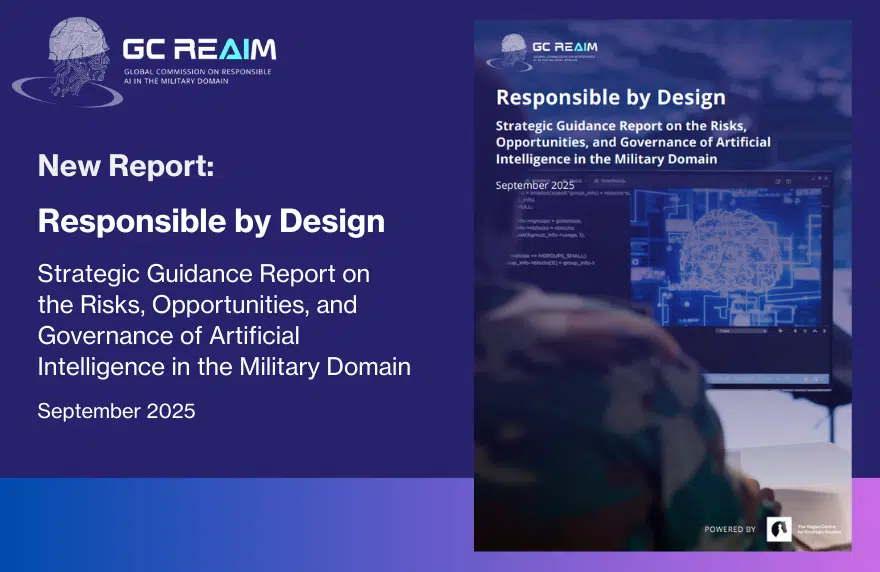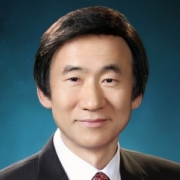Research
Artificial intelligence is a transformative and civilization-shaping technology. Its integration into the military domain carries profound implications for how armed conflict is conducted, including how decisions are made and responsibilities are managed in one of the most consequential areas of human activity. The stakes extend beyond the battlefield, introducing heightened risks in the context of international peace and security.
Building on the momentum initiated by the 2023 REAIM Summit in the Hague and furthered by global deliberations on the governance of AI in the military domain, this report serves as the key deliverable of GC REAIM to date.
It establishes a foundational framework to support informed dialogue and engagement among diverse stakeholders: from policymakers and military practitioners to industry developers and disciplinary experts. At its core is the concept of responsibility by design: the idea that ethical and legal compliance must be integrated from the earliest stage of development, through the entire AI system lifecycle as well as in the socio-technical institutions in which AI applications are embedded.
The responsible development and use of AI in the military domain requires informed human decisions and context-specific approaches to designing, testing, and deploying these technologies in ways that uphold values of peace and human dignity. GC REAIM recognizes that normative questions about human agency cannot be answered in the abstract. Norms and principles must be translated into actionable guidelines and standards.
Drawing on the Global Commission’s diverse expertise and perspectives, the report:
- Provides a shared knowledge base for policymakers, practitioners, and experts from various backgrounds, forming common ground for deliberations;
- Offers targeted recommendations for states, militaries, and industry, for the responsible development and use of AI throughout the system lifecycle;
- Proposes an approach for the institutionalization of global governance.
The structure of this report reflects the intricacies of the issue area. Each part addresses a critical dimension, contributing to a holistic analysis and forming the basis for coherent and actionable solutions:
- Section 2 of the report lays out the inherent complexities and dynamics found at the nexus of AI and the military domain;
- Section 3 outlines the risks and opportunities associated with the integration of AI into the military domain within the contexts of peace and security, the conduct of armed conflict, as well as beyond armed conflict;
- Section 4 presents guiding principles and core recommendations, which are elaborated in the form of general guidance throughout the AI system lifecycle as well as specific guidance for states, militaries, and industry;
- Section 5 provides policy and diplomatic updates, a general conclusion on GC REAIM’s findings, and points to next steps.
CITATION: The Global Commission on Responsible Artificial Intelligence in the Military Domain, Responsible by Design: Strategic Guidance Report on the Risks, Opportunities, and Governance of Artificial Intelligence in the Military Domain, The Hague, 2025
The Strategic Guidance Report reflects the independent judgement and deliberations of the Chair and Commissioners of GC REAIM. While the Commissioners have drawn on the valuable insights of the GC REAIM Expert Advisory Group, whose contributions, including authored policy notes, have informed aspects of this report, the responsibility for the views, recommendations, and conclusions expressed herein rests solely with the Chair and Commissioners, and does not necessarily reflect the views of the Experts or their respective organizations. The Global Commission acknowledges with appreciation the essential role of the Expert Advisory Group in supporting rigorous, multidisciplinary dialogue throughout the process.























































